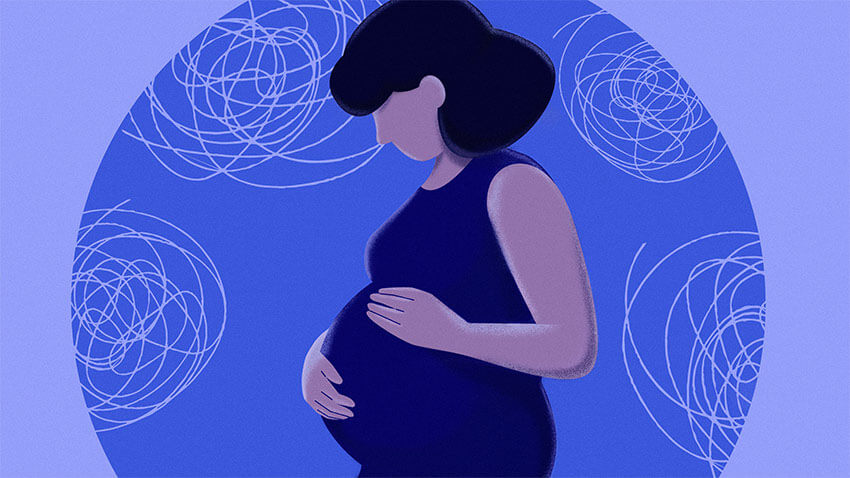Depression is a mental illness that affects many people in the United States. It can cause feelings of sadness, hopelessness, and worthlessness. Depression can also lead to suicidal thoughts. Did you know that depression can also affect pregnant women? Pregnancy is a time when many women experience intense emotions, and for some women, these emotions can be so severe that they are diagnosed with depression. In this blog post, we will discuss the signs and symptoms of depression during pregnancy, as well as how to get help if you are experiencing these symptoms.
Contents
What Is Depression?
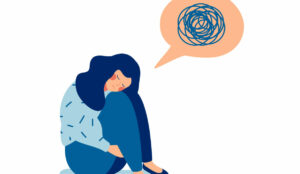
Depression is a mood disorder that causes a persistent feeling of sadness and loss of interest. It affects how you feel, think, and behave and can lead to a variety of emotional and physical problems. You may have trouble doing normal day-to-day activities, and sometimes you may feel as if life isn’t worth living.
Depression is thought to be caused by a combination of genetic, biological, environmental, and psychological factors.
Depression is one of the most common mental disorders, and it affects people of all ages, genders, and backgrounds. According to the National Institute of Mental Health (NIMH), about 16.1 million adults in the world had at least one major depressive episode in 2016. And 1 in 20 adults (5%) had a severe form of depression.
Depression during pregnancy is also common, affecting 1 in 9 women. It’s important to treat depression during pregnancy because it can lead to serious complications for both mother and child. These include an increased risk of premature birth, low birth weight, and postpartum depression (PPD).
Are Depression and Pregnancy Connected?
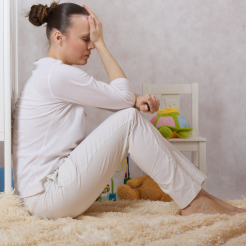
The connection between depression and pregnancy is well-established. It is estimated that between 14-23% of pregnant women experience symptoms of depression.
Depression during pregnancy can present itself in many different ways. Some women may feel more weepy or irritable than usual. Others may lose interest in activities they normally enjoy, have difficulty sleeping, or feel overwhelmed by the changes their bodies are going through.
For some women, depression during pregnancy can be so severe that it interferes with their ability to function on a day-to-day basis. If you are experiencing any of these symptoms, it is important to talk to your doctor or midwife, as untreated depression can have serious consequences for both you and your baby.
Also, the National Institute of Mental Health states that “Untreated depression during pregnancy is also linked to a higher risk for preterm labor, low birth weight, and infant mortality.”
What Causes Depression During Pregnancy?
The exact cause of depression during pregnancy is unknown. However, it’s thought to be caused by a combination of hormonal changes, genetic factors, and psychological factors.
Hormonal Changes
One of the most common factors that can trigger depression during pregnancy is the hormonal changes that occur. These changes can affect a woman’s mood, energy level, and ability to cope with stress.
During pregnancy, the levels of the hormones estrogen and progesterone increase. These hormones play a role in regulating a woman’s mood. A sudden drop in estrogen levels can trigger depression.
Other hormones, such as thyroid hormone and cortisol, are also thought to play a role in causing depression during pregnancy. Changes in these hormones can also lead to fatigue, anxiety, and mood swings.
Genetic Factors
Depression may also be caused by genetic factors. If you have a family history of depression, you’re more likely to experience it yourself. This is especially true if your mother or sisters have had depression during pregnancy.
Psychological Factors
Psychological factors, such as stress, anxiety, and low self-esteem, can also contribute to depression during pregnancy.
Pregnancy can be a stressful time for any woman. You may worry about the health of your baby, how you’re going to afford everything, or whether you’re doing everything right. If you’ve experienced a traumatic event in the past, such as rape or the death of a loved one, you may be more at risk for depression during pregnancy.
What Are the Symptoms of Depression During Pregnancy?
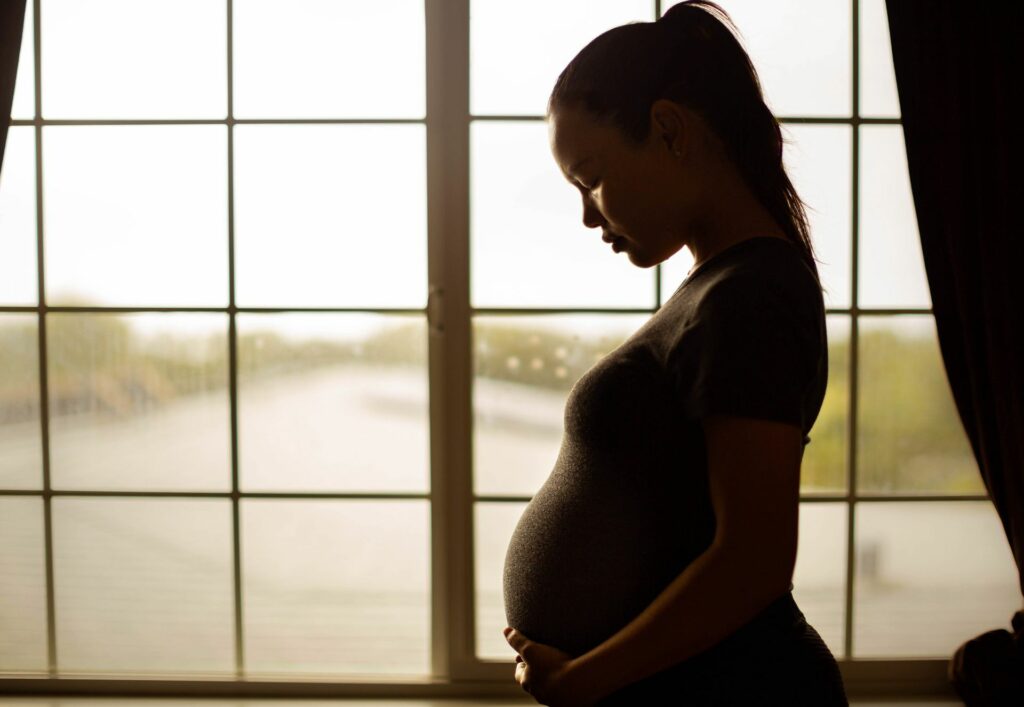
The symptoms of depression during pregnancy can vary from mild to severe. They may include:
Feeling sad, hopeless, or empty most of the time
One of the main signs of depression is feeling sad, hopeless, or empty for a prolonged period. This may be accompanied by crying spells, irritability, or anxiety.
Loss of interest in activities you once enjoyed
When you’re depressed, you may lose interest in activities that you once enjoyed. This can include things like hobbies, spending time with friends and family, or sex.
Changes in appetite or weight
Depression can lead to changes in your appetite and weight. You may find that you’re either eating more or less than usual. You may also notice a change in your weight. Depression can cause weight gain or weight loss.
Sleep problems
Depression can cause sleep problems such as insomnia (trouble falling asleep) or hypersomnia (sleeping too much). You may find that you’re not able to get the rest you need, or that you’re sleeping all the time and still feel exhausted.
Fatigue
Depression can cause fatigue or a feeling of being “drained.” Even if you’re getting enough sleep, you may still feel tired all the time.
Difficulty concentrating
Depression can make it hard to focus or concentrate on anything. This can make it hard to complete simple tasks at work or home.
What Are the Complications of Depression During Pregnancy?
Depression during pregnancy can cause several complications, both for you and your baby.
If you’re depressed, you’re more likely to smoke, drink alcohol, or abuse drugs. This can lead to health problems for you and your baby. Smoking, drinking, and drug abuse can also make it harder for you to bond with your baby after birth.
Some of the most common complications of depression during pregnancy include:
Preterm labor
Depression has been linked to an increased risk of preterm labor. Preterm labor is labor that starts before 37 weeks of pregnancy. Babies born before 37 weeks are more likely to have health problems than babies born full-term.
Low birth weight
Depression has also been linked to low birth weight. Low birth weight is defined as a baby who weighs less than 5 pounds, 8 ounces at birth. Low birth weight babies are more likely to have health problems than babies of normal birth weight. They’re also more likely to die in the first year of life.
Pregnancy complications
Depression has been linked to an increased risk of developing pregnancy complications, such as preeclampsia and gestational diabetes. Preeclampsia is a condition that can occur during pregnancy. It is characterized by high blood pressure and protein in the urine. Gestational diabetes is a type of diabetes that occurs only during pregnancy.
Mental health problems in children
Depression during pregnancy has been linked to an increased risk of mental health problems in children, such as anxiety, depression, and ADHD. These problems can last into adulthood.
If you’re struggling with depression during pregnancy, it’s important to get help. Treatment can help improve your symptoms and reduce the risk of complications for you and your baby.
Treatment Options for Depression During Pregnancy
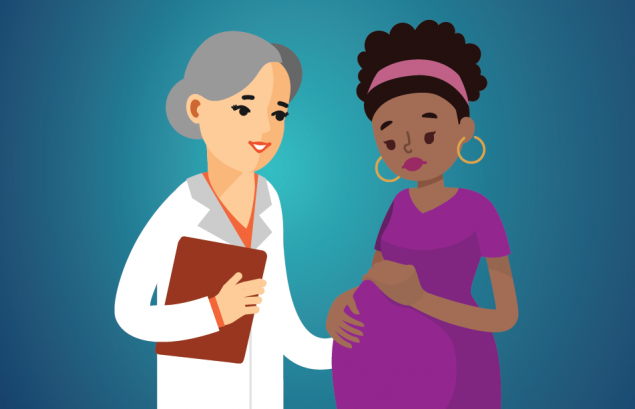
There are several treatment options available for depression during pregnancy. These include:
Counseling or Therapy
One of the most common treatment options for depression is counseling or therapy. This can help you identify and change negative thought patterns. It can also help you learn healthy coping mechanisms.
Support groups
Another common treatment option for depression is support groups. This can provide you with a network of people who understand what you’re going through. Support groups can also offer helpful information and resources.
Medication
In some cases, medication may be recommended to treat depression during pregnancy. Antidepressants are the most common type of medication used to treat depression. It’s important to talk to your doctor about the risks and benefits of taking medication during pregnancy.
Hospitalization
In severe cases, hospitalization may be necessary. This is typically only done if there is a risk of harm to you or your baby. These cases are rare.
Self-Care
Another important part of treatment is self-care. This includes things like getting enough sleep, eating a healthy diet, and getting regular exercise. These things can help improve your mood and overall health.
If you’re struggling with depression during pregnancy, it’s important to get help. Treatment can help improve your symptoms and reduce the risk of complications for you and your baby.
Conclusion
Dealing with depression during pregnancy can be extremely difficult. If you are struggling with depression, it is important to seek help from your doctor or mental health professional. Depression can hurt your pregnancy and your developing baby, so treatment is essential. With the right support and treatment, you can manage your depression and have a healthy pregnancy.
If you think you may be suffering from depression, please speak to your doctor. Getting help for depression is important for you and your developing baby. There are many effective treatments available, so there is no need to suffer from this condition. Seek professional help today and start on the road to recovery.
Hope this article was of help to you! If you are suffering from mental health disorders, you may seek help from Therapy Mantra. We have a team of highly trained and experienced therapists who can provide you with the tools and skills necessary for overcoming mental health disorders. You can also book our online depression counseling session or download our free Android or iOS app
